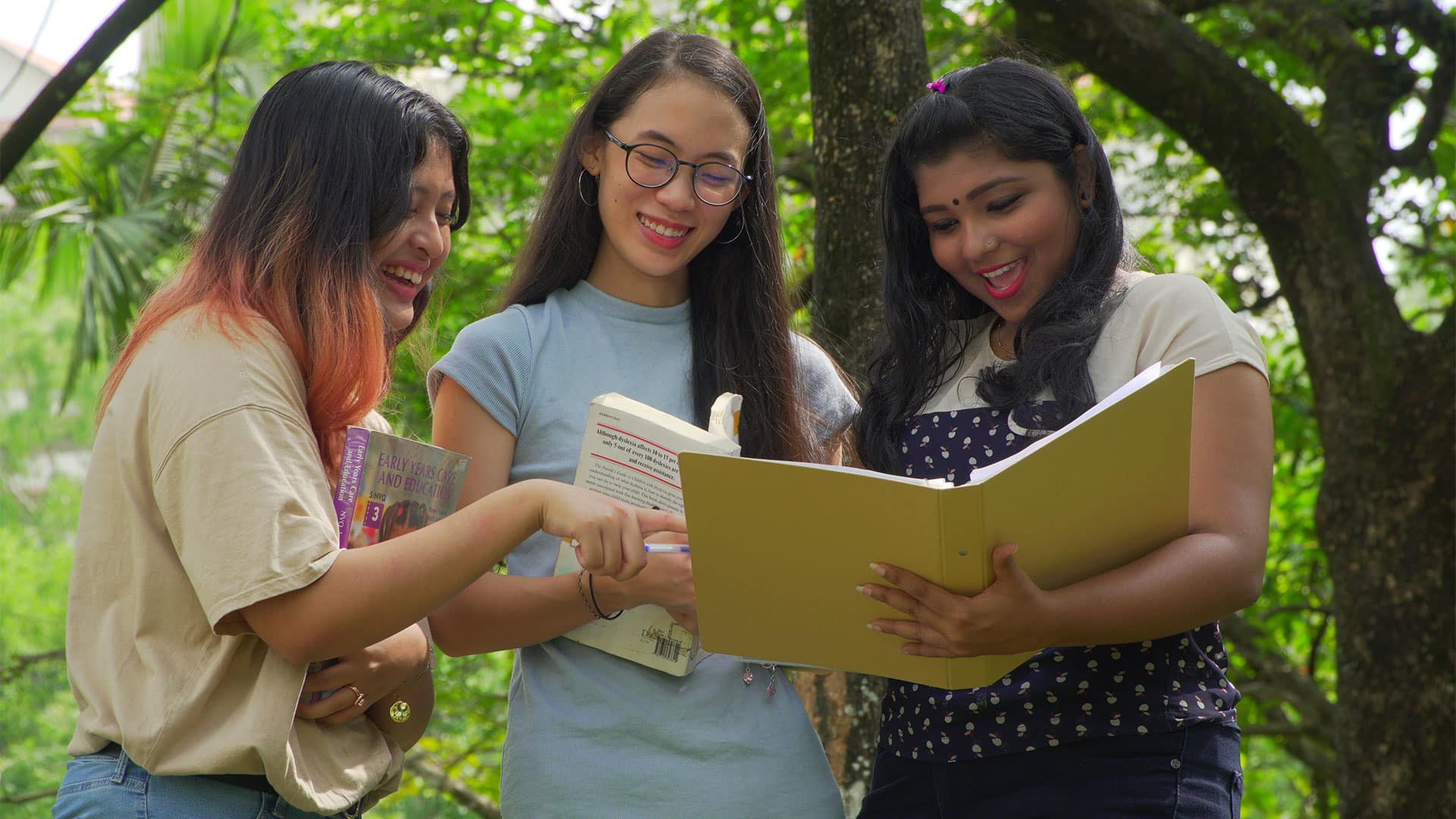
Programme Module
The need for special education teachers in preschool is expected to grow up to 9 percent before 2024*. Our Diploma in Special Education (Early Years) is designed to mold educators for young children with special needs.
PROGRAMME
DURATION (YEAR)
CREDIT HOURS

18 ACADEMIC
MODULES

2 PRACTICUMS
4 MPU
MODULES
An Introduction to Special Education
Definition of special needs
Special needs is a broad term that is used to describe individuals who need help and support for any kind of disabilities such as physical disabilities, developmental disabilities and learning disabilities.

Some examples of special needs are:
- Dyslexia – A specific learning disability in reading, spelling and writing.
- Autism Spectrum Disorder (ASD or Autism) – It refers to a range of conditions characterized by challenges with social skills, speech, repetitive behaviours, and non-verbal communication.
- Attention Deficit Hyperactivity Disorder (ADHD) – A person with ADHD has differences in brain development and activity that affects self-control, attention and the ability to sit still.
- Cerebral Palsy – A physical disability affecting a person’s posture, balance and ability to move.
- Down Syndrome – A chromosomal disorder that causes delay in the way a child develops mentally and physically.
- Twice Exceptional (2e) – An undiagnosed learning and thinking difference that results in either learning disabilities is hidden by giftedness or giftedness is hidden by learning disabilities.
Children with special needs

In the context of early years, a child with special needs will find it more difficult for them to learn than most children of their age do, due to many challenges arise from their disabilities or learning difficulties in terms of communication, behaviour or schoolwork. Unlike other children of their age, due to their unique needs, they may need extra support which may require the use of special types of teaching approaches or care or equipment.
Education right for children with special needs
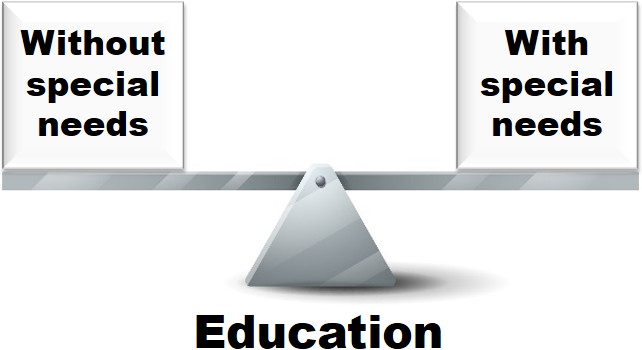
In Malaysia, every child deserves the right to basic education and an equal opportunity of having a happy and healthy childhood. Educators should take into consideration all the differences between children and learning approaches should be adapted to meet their individual needs, so that they can maintain the pace in the learning process with typical children.
Definition of special education
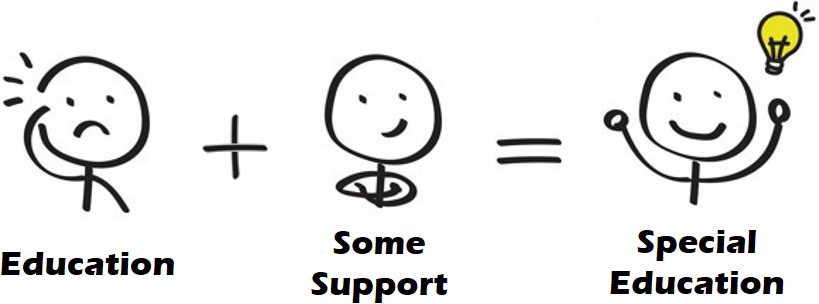
Therefore, special education comes into the picture. Special education, also known as special needs education, is an educational solution or a modified programme, which involves the use of some unique tools and techniques to improve instructional arrangements, designed to help students with different special needs to get quality education via full development of their capabilities and social participation.
Special Needs Education in Malaysia
In 2012, an estimated 1.5% of the country’s population, about 440,000 people registered with disabilities. The Education Ministry has registered a total 87,574 students under the special needs education in Malaysia[1] on 30th June 2019. It is unknown, however, the total number of children who are not registered, not diagnosed, or misdiagnosed. The exposure of the importance of special needs education in Malaysia is significantly growing since the last two decades from the Ministry adopting “the least restrictive environment” to integrating inclusive classrooms. Currently, the Ministry of Education provides children with disabilities with THREE (3) schooling options under the national special needs education system in Malaysia:
- Special Education Schools
- Special Education Integrated Programme (SEIP)
- Inclusive Education Programme[2]
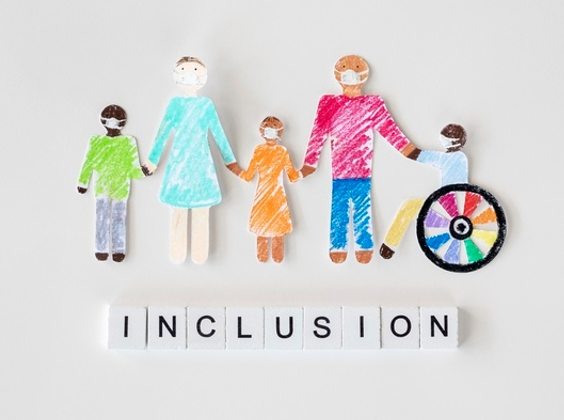
However, a current research was done towards Malaysian school readiness for an inclusive education, and found out that mainstream school teachers still need training and assistance from special education teachers[3]. Of course, Malaysia still has plenty of room to grow. With the NGOs, specialised centres, and experts speaking and educating the public, we are making our way towards “all for all” education. Even what used to be a shameful and embarrassing mind set has now turned into an openness and optimistic perception for some parents to accept their child’s special abilities. Parents are more inclined to enrol their child in a specialized customized programme that is best suited for their child’s needs.
Reference:
- Education Ministry registers 87,574 special needs students as of June, News Straits Times by Hashini Kavishtri Kannan, 26 September 2019
- Inclusive Education Malaysia: A School For All Children; UNICEF Malaysia, June 2014
- Schools Readiness to Accept 75% of Children with Special Needs in Mainstream Learning Environment by 2025, Abdul Rahim Razalli, Haniz Ibrahim, Manisah Mohd Ali, Nasir Masran, Grace Annamal A/P Gnana Piragasam, Noor Aini Ahmad, Noratiqah Satari, International Journal of Academic Research in Progressive Education and Development, 24th February 2021, ISSN 2226-6348
The Importance of Special Education
Learning disability: An emerging global issue
Numerous research studies conducted on topics and issues related to special needs are illustrated below:
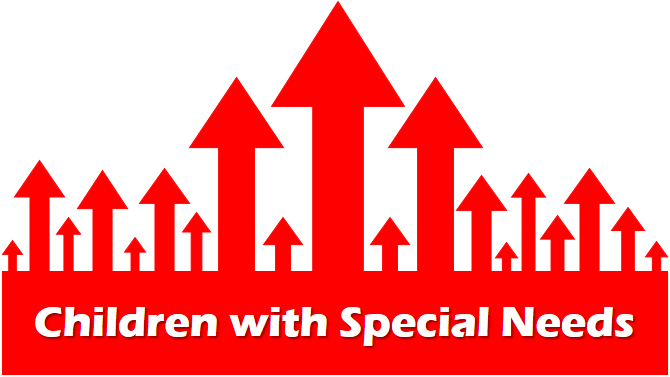
- The World Report on Disability has shown that 15% of global population live with a disability, and 1 in 20 children globally has a disability.[1]
- According to the statistics published by Dyslexia Center of Utah, 1 in every 5 students has a language based learning disability (in which Dyslexia is the most common one), and 30% of children with Dyslexia have at least a mild form of ADHD.[2]
- TACA’s research finding shows that approximately 1 in 59 children in the U.S. are diagnosed with ASD in 2018.[3]
- Approximately 1 out of every 10 children in between the age of 4 and 17 years old were ever diagnosed with ADHD.[4]
- 17,000,000 people in the world today have cerebral palsy, in which 1 out of every 10 people with cerebral palsy has severe vision impairment.[5]
The increasing number of children with special needs represents a major challenge to the children, parents, communities, and countries worldwide. However, it is not the responsibility of the children alone. Instead, it is the responsibilities and duties of everyone as a society to learn to understand, respect and accept one another’s differences, which serves as a first step in fixing the problem.
Learning disability is not an obstacle to success

Despite the increased prevalence of learning disabilities, they are not an obstacle to success and this has already been proven by many success stories[6,7]. For instance, Tom Cruise was diagnosed with Dyslexia at the age of 7, Keanu Reeves struggled with dyslexia in school, Justin Timberlake has ADHD, even the great mathematician and physicist Albert Einstein was dyslexic. In other words, children with different kinds of special needs can still pursue degrees, attain careers, achieve goals and set records in their future.
Government’s initiatives to improve special education practices

In 2019, the Malaysian government introduced the “Zero Reject” policy, a proactive initiative to meet the Malaysia Education Blueprint (2013-2025)[8]. Under such a policy, no schools are allowed to turn away students with special needs, hence, putting us one step closer to the realization of inclusive education. Inclusive education, also called inclusion, happens when children with and without special needs participate, learn, and grow together in the same learning environment. Research findings have shown that both groups of children can benefit from this setup. When they realize that difference is just a normal part of life, all assumed differences between the 2 groups become less. And this is crucial to develop a nurturing, caring, and understanding person.
Special education is a door to endless possibilities

In conclusion, special education, which can provide necessary encouragement, guidance and support to children with special needs to be more independent and successful, at the same time benefiting children without learning disabilities indirectly, is a key to unlock the infinite possibilities.
Reference:
- https://www.hopeandhealing.org/why-disability/
- https://www.dyslexiacenterofutah.org/Statistics
- https://tacanow.org/autism-statistics/
- https://chadd.org/about-adhd/general-prevalence/
- http://yourcpf.org/statistics/
- https://healthcare.utah.edu/healthfeed/postings/2017/07/famous-learning.php
- https://www.topcounselingschools.org/rankings-30-celebrities-you-didnt-know-have-learning-disabilities/
- https://www.thestar.com.my/news/nation/2019/01/03/accept-special-needs-pupils-teo-zero-reject-policy-aims-to-ensure-inclusive-education/
Benefits of Pursuing Diploma in Special Education (Early Years)
Below are some amazing reasons as to why you should pursue a Diploma in Special Education (Early Years).
-
The career is incredibly rewarding

Special educators, also known as special needs educators, are very committed to working with children with special needs because they perceive their work as a calling, purposeful and meaningful. They understand that a lot of effort and support are required for the children to overcome their learning disabilities. Therefore, whenever a child makes a breakthrough, and comes over and gives them a hug, that moment of bonding is emotionally fulfilling and incredibly rewarding.
-
Better adaptability skills

Specializing in early education does not mean you will automatically end up as a teacher solely. Similar to special education, you will learn various ways and techniques in supporting children with special needs. Not just in a classroom setting, in any industry that focuses mainly on children. Graduates are equipped with the knowledge in handling situations that need special care and attention and this is a great adaptability skill set that not many people may have. For example, if you work in a toy manufacturing company, with this diploma in hand, you can even suggest or come up with ideas for toys that suit or benefit children with special needs.
-
Every day is different, challenging but exciting
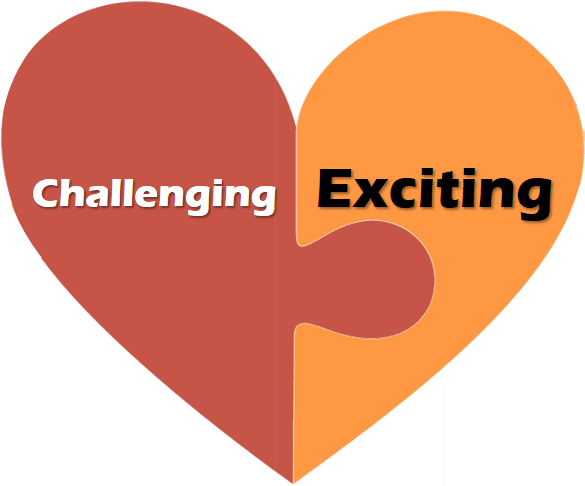
Every child with special needs is unique. For instance, two children with Dyslexia might have little in common. For this reason, a solution that is useful for one might not be useful for another. To inspire them to overcome their learning disabilities and realise their true potential, special educators are required to understand each student’s unique goals, challenges and needs, as well as continuously changing and adapting them, which requires a lot of creativity, imagination and compassion. This is what makes the career challenging, but fun and deeply rewarding.
-
Higher demand, pay and mobility for special educators

The increase in students with special needs has resulted in an increased demand for special educators and the shortage of special educators globally has translated into higher pay for them. Moreover, special educators who are more capable of educating a more diverse group of students (i.e., those who are ahead, those who are behind, and those with exceptionalities) have a competitive advantage over general education teachers. Hence, they can provide support to general education teachers in managing regular classrooms, which benefits both children with and without special needs. This additional specialization is what makes them more resilient to the challenges associated with learning disabilities and also gives them an edge in a job search based on their preferences such as dream locations.
Programme Structure
Understanding Young Children & Special Needs Children
- Philosophy and Early Childhood Special Education in Malaysia and in the West
- Knowing How Young Children Grow and Learn
- Understanding Young Children With Special Needs
- Sensory Processing Disorder
- Observing, Assessing & Evaluating Children with Special Needs
- Safety, Health, Nutrition & Hygiene
Educating Children with Special Needs
- Educating Children with Specific Learning Disabilities
- Educating Children with Autism
- Educating Children with Intellectual Development Disorder
- Educating Children with Communication Disorder
- Educating Children with Physical, Visual and Hearing Impairment
- Educating Children with ADHD
- Educating Children who are Gifted and Talented
Personal & Professional Development
- Inclusive Education
- Curriculum and Evaluation for Children with Special Needs
- Program Planning and Strategic Teaching in Regular and Special Education
- Interpersonal and Communication Skills
- Introduction to Counselling
- Practicum 1
- Practicum 2
Compulsory MPU Modules (Mata Pelajaran Pengajian Umum)
- Pengajian Malaysia 2
- Bahasa Kebangsaan A* or English for Reading and Writing**
- Effective Management and Leadership
- Community Service
Family and Community
- Family and Community 1
- Family and Community 2
.
These special education’s courses aim to get our students ready for the venture of effectively educating children with special needs, with mutual respect and an open mind toward the philosophy of inclusion. At the end of the studies, students will be equipped with the know-how and skills to help children of different ages who have a range of special needs to progress beyond their limitations and achieve their highest potential in an inclusive and / or segregated setting.
Entry Requirements
- Pass SPM/O-Level/IGCSE with a minimum of 3 credits
- A minimum of Grade B in 3 subjects for UEC
- Pass in related field in SKM Level 3
- Pass Certificate in Early Childhood Education from other institutions
- Other equivalent qualifications recognised by the Ministry of Higher Education Malaysia
Study Mode
- Weekdays
- Weekends
Financial Options
- PTPTN Loan
- EPF Withdrawal
- Installment Payment
Career Path
This Diploma programme can assist you in the following careers:
- Behavioral Specialist
- Counselor
- Child Psychologist
- Child Life & Care Specialist
- Early Interventionist
- Experiential Coach
- Guidance Specialist
- Psychometrist
- Researcher
- Special Needs Educator
- Personal Learning Guide
- Therapist

